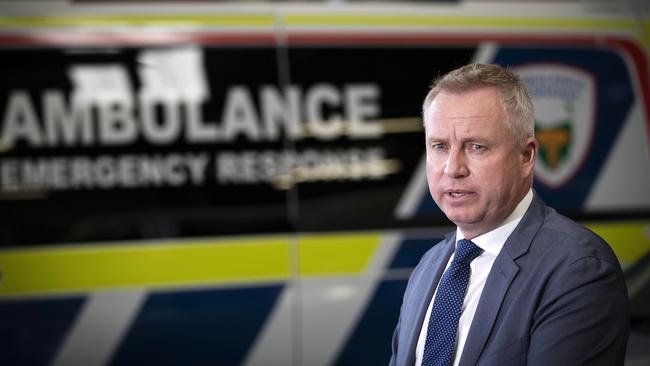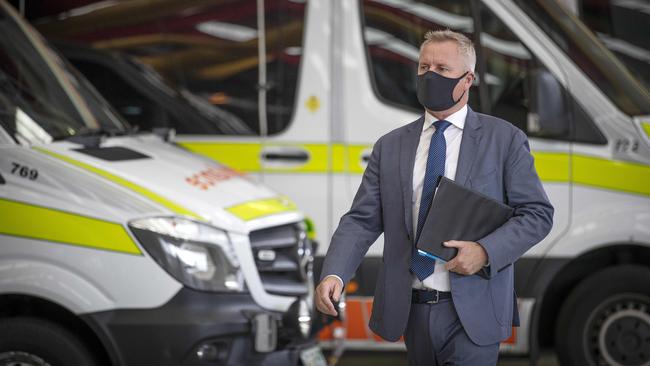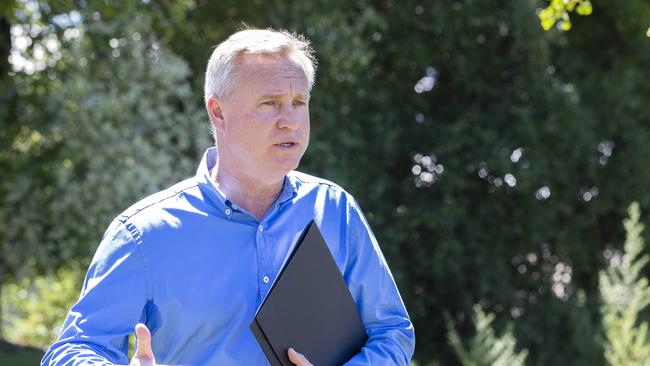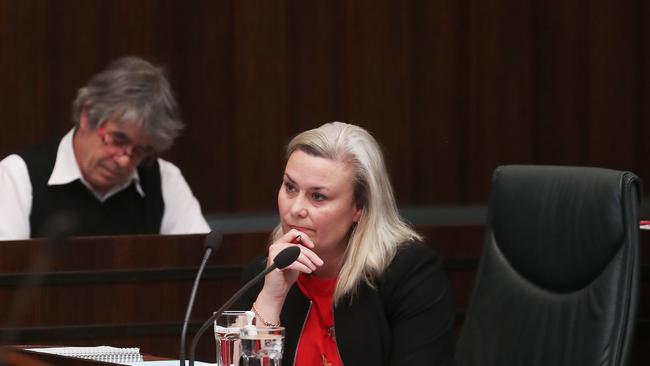Peak state school body says return to classrooms is unsafe for vulnerable, disabled children
A peak state school body has called for a string of extra measures before school goes back, saying children with underlying health conditions or disabilities aren’t safe to return to the classroom.
Tasmania
Don't miss out on the headlines from Tasmania. Followed categories will be added to My News.
A peak state school body has called for a string of extra measures before school goes back, saying children with underlying health conditions or disabilities aren’t safe to return to the classroom.
Tasmanian Association of State School Organisations (TASSO) secretary Nigel Jones has said vaccination rates weren’t high enough, and schools would not be safe to reopen next Wednesday.
With about 53 per cent of children aged five-11 receiving their first dose so far, Mr Jones said those who weren’t vaccinated in time for the school year, and those who had underlying health conditions, were most at risk.
“I just can’t believe that the government is playing Russian roulette with our children,” he said.

“The information that we have is that some of the students can’t get double vaccinated or the booster because of underlying health issues so we’ve got to take into account those students and they’re not even geared up for home schooling.”
Acting Education Minister and Health Minister Jeremy Rockliff said the government was contacting and assisting vulnerable children.
“The Department of Education stood up a team of eight staff to identify students within the Student Support System that may be more vulnerable due to Covid-19,” Mr Rockliff said.
“School Health Nurses have then made contact with these families, prioritising those students whose medical circumstances or disability may make them particularly vulnerable.”
Mr Rockliff said advice consistently recommended schools as the best place for students.
But Mr Jones said families of vulnerable children, or immunocompromised adults at risk of contracting coronavirus from their school-aged family members, should “seriously look at” homeschooling.

The TASSO secretary said several factors needed to change before schools were safe enough; vaccination rates needed to be higher, ventilation works in schools needed to be finalised, and rapid antigen tests needed to all have been distributed to families.
“We’re saying that for those that have underlying health issues, and kids with disability, (the government should) delay school for a week and let’s see if those measures can be put in place,” Mr Jones said.
Mr Rockliff said special adjustments were well underway, including clear face visors so students could lip-read what teachers said, extra outdoor learning support including sun safety, and support for children with disability to become comfortable with mask requirements.
He said all North, North-West and southern public schools would distribute Covid care packs for collection on Monday and Tuesday.
“Our schools will be stocked to provide replacement RATs as needed with more than 1.5 million tests available to supply our schools in the coming weeks,” he said.
Some non-state schools have already commenced term one, with Mr Rockliff saying the transition “had been working well”.
The Minister will meet with public, independent and Catholic sectors again on Friday to “identify issues of need”.
Labor laments ‘appalling’ latest ED, elective surgery health stats
Some 40 per cent of Tasmanians who presented to hospital emergency departments in the last financial year were not seen on time, a Productivity Commission report says.
The Health Report on Government Services (RoGS) 2022 was released on Tuesday, revealing 58 per cent of Tasmanian ED patients were seen on time in 2020-21.
This figure was equal with Western Australia and above the country’s lowest statistic of 48 per cent in the ACT, but fell below the national average of 71 per cent.
It’s a drop from the 65 per cent in 2019-20 and 72 per cent in 2013-14.
It comes as the state also recorded the second-highest elective surgery wait times in the country at all public hospitals, with patients waiting a median rate of 65 days to receive surgery last financial year.
This was blown out from 55 days in 2019-20 and 42 days in 2017-18.

But Health Minister Jeremy Rockliff said the RoGS showed some “encouraging improvements”.
“The report shows that Tasmania has continued to open new hospital beds, despite a national decrease in beds over the past year and we are continuing to increase our bed capacity with a further 152 beds coming into the health system,” he said.
He said the elective surgery waitlist had dropped by more than 2100 people since January last year, with 18,192 elective surgeries conducted in the last financial year showing a 20 per cent increase from the previous period.
“The Report demonstrates that our plan to deliver around 30,000 additional surgeries over four years is working,” Mr Rockliff said.
But Labor Shadow Health Minister Anita Dow said the statistics reflected the government’s resourcing and staffing failures over the last eight years.

“No amount of spin or bluster from this Premier and his Health Minister Jeremy Rockliff is going to disguise the fact that emergency departments are at an unacceptable tipping point, staff at the frontline have not been resourced and are exhausted and Tasmanians are simply being forced to live in pain,” Ms Dow said.
“It’s appalling that only 49 per cent of urgent cases that present to emergency departments are seen on time in Tasmania,” Ms Dow said.
“The RoGS shows just how extraordinary the situation continues to be around elective surgery with Tasmanians waiting, for instance, 631 days for a hip replacement and 731 days for a knee replacement.”





